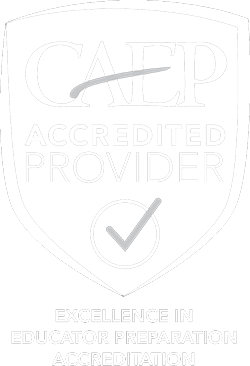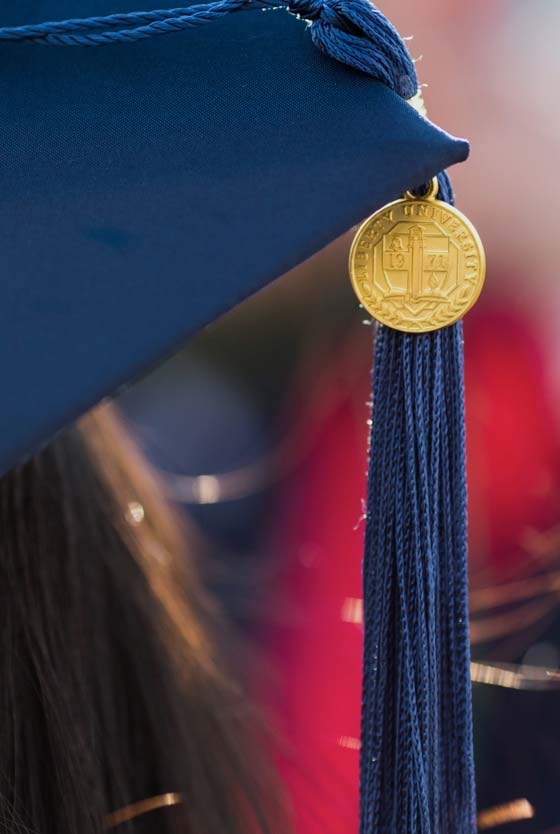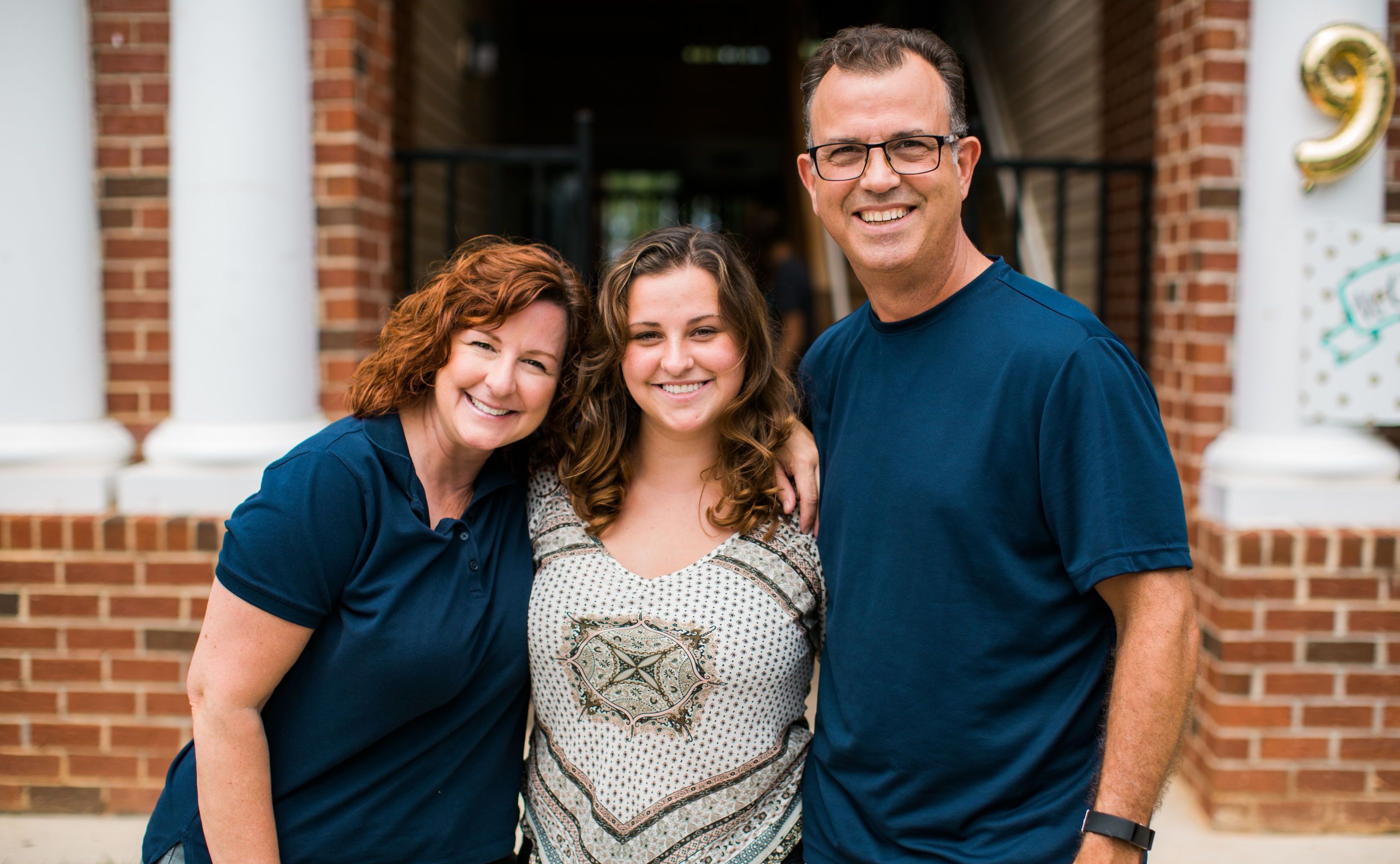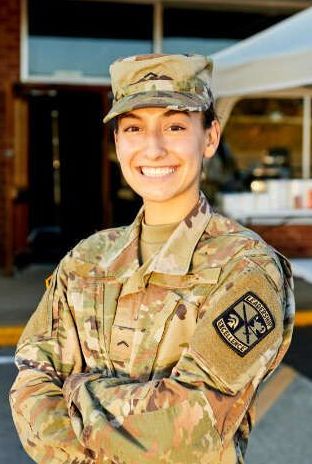Bachelor of Education Elementary Education: Special Education General Curriculum
Pursue Your Calling to Help Students with Special Needs by Earning a B.Ed. in Elementary Education – Special Education
Educating young people is an important mission. And if you are pursuing a career in special education, it is often a calling. Liberty University’s Bachelor of Education (B.Ed.) in Elementary Education – Special Education degree can help equip you with the tools you need to become an elementary school teacher as well as give you the additional training needed to teach a special education general curriculum from kindergarten to the sixth grade.
Our Bachelor of Education in Elementary Education – Special Education is an elementary teacher licensure degree with a special education add-on – meeting Virginia state licensing requirements. Upon graduation, you can teach students ranging from kindergarten to 6th grade. If you are looking to teach in another state, reciprocity* may be available.
Pursue Your Degree with Confidence
- Liberty University is accredited by SACSCOC, the Southern Association of Colleges and Schools Commission on Colleges.
- Liberty University’s School of Education meets rigorous national standards for educator preparation set by the Council for the Accreditation of Educator Preparation (CAEP).
- You will have a total of over 90 practicum hours and at least 1 full semester of student teaching by the time you graduate.
- The Educational Technology Lab provides students with resources, software, and equipment to help promote learning with technology.
- All of our faculty who oversee licensure courses have K-12 experience and a current teaching license.
- You will have the opportunity to do your student teaching in various locations throughout Virginia, including the Washington, D.C., public school system through our Washington Fellowship program.
What Will You Study?
- Behavioral and individual differences of students
- Classroom teaching
- Elementary school curriculum and instruction
- Foundational subjects like English, communication, math, history, and psychology
- How to differentiate instruction for students with mild and moderate disabilities
- How to help children from diverse cultural and socioeconomic backgrounds achieve their educational best
- How to teach reading, writing, and language
- Middle school curriculum and instruction
This program has been approved by the Virginia Department of Education. Licensure requirements may vary by state. Please research your state’s licensure or reciprocity requirements here: https://www.liberty.edu/statelicensure/.
Career Options for Elementary Education – Special Education Graduates
Liberty’s Bachelor of Education (B.Ed.) in Elementary Education degree can help prepare you for a variety of education-related jobs, such as:
- Elementary school teacher
- K-6 curriculum coordinator
- K-6 education consultant
- Private school teacher
- Special education advocate, program specialist, or teacher
- Special education teacher (K-6)
- Teacher’s aide
- Tutor
Upon successful completion of the B.Ed. in Elementary Education – Middle Grades Science, you can be prepared with a well-respected degree in education, Virginia licensure, and over 300 hours of classroom experience. This degree can equip you with all the necessary resources, tools, and knowledge needed to succeed.
Practical Learning Opportunities for B.Ed. Students
- You will have a total of over 90 practicum hours and at least 1 full semester of student teaching by the time you graduate.
- Find the resources you need to promote learning through technology in our on-campus Educational Technology Lab.
- Your education professors have real-life experience teaching children and adolescents, and if they are overseeing practicum requirements, then they also have a current teaching license.
- You’ll have a variety of locations to choose from for your student teaching semester.
- Pursuing our Bachelor of Education licensure tracks may make you eligible for the Federal TEACH Grant.
Admission Requirements for Our Undergraduate Degree Programs
Every application is reviewed by the admission committee on a case-by-case basis, meaning there are no set minimums for acceptance. However, all applicants must submit the following documents* for admission:
- Admission application
- Official high school transcripts
- Official college transcripts (if applicable)
- Results from the CLT, SAT, or ACT are not required for admission, but may be used in consideration for merit-based aid.
- Admission essay
*Note that additional documentation may be requested by the admission committee after your application has been received.
Tuition rates may change annually. For the most current information, please visit our LU Tuition Cost page.
Credit Hours
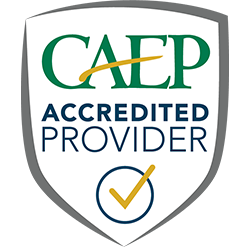
Available On Campus
Class Type
Residential
Transfer Credits
Transfer in up to 75% of the degree total
Next Start Date
Jan 19, 2026
Accreditation
CAEP

